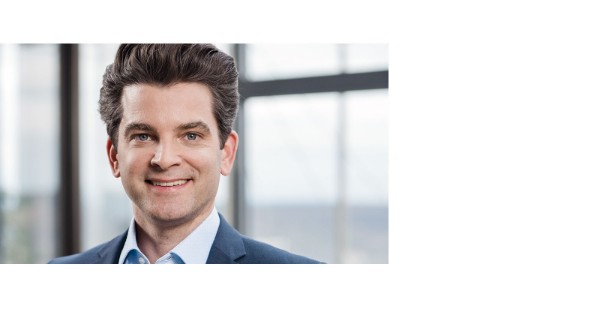DHL releases latest Trend Report on the "Future of Work in Logistics", highlighting key levers for workforce digitalization and transformation
Over 7,000 professionals from the logistics and supply chain industry weighed in on the opportunities and challenges they face to contribute to the report.
- Aging workforce and the subsequent labor shortage impacts supply chains on a global-scale
- Millennials and Gen Z seek jobs with more purpose, less repetitive tasks, and more flexible work environments
- 9 in 10 logistics workers believe technology has been beneficial to their role in the past 5 years and will remain so in the next 10 years, yet over 50% still view technology as a potential threat.
- COVID-19 introduced significant change as many businesses quickly embraced new work policies and remote-work technologies
Bonn - In the latest Trend Report, "Future of Work in Logistics", DHL examines how the concept of work – the roles, responsibilities, systems, schedules, tools, and environments of logistics workers – will change over the coming decade. As the industry grapples with a growing labor shortage and a war over talent, organizations will need to deploy strategies to attract, retain, develop and motivate workers in a digital era in order to succeed. Over 7,000 professionals from the logistics and supply chain industry weighed in on the opportunities and challenges they face to contribute to the report.
For the first time in history, digital natives will begin to outnumber those who began their careers before the internet and this continued influx of younger people in the workforce is accelerating a shift of values in the workplace. Millennials and Generation Z are pressuring the logistics industry to meet new expectations around sustainability, diversity & inclusion, employee well-being, and tech-forward environments. Combined with improvements in the realms of digitalization, automation, and artificial intelligence, there has already been a significant impact on jobs, workplaces, and entire sectors around the world.
"While 9 in 10 survey respondents felt technology has been helpful to their career, still over 50% admitted viewing AI and automation as a potential threat," said Matthias Heutger, SVP and Global Head of Innovation at DHL. "This represents a huge opportunity and responsibility for corporations and governments to act swiftly and collaboratively to alleviate concerns by providing transparent strategies forward and demonstrating success with human-machine co-working environments to lead people into the next era of work with confidence."
While experts do not foresee the logistics industry introducing an instant and dramatic "flip of the switch" from human labor to full automation, respondents do see a gradual period of change over 30 years in which more roles will collaborate with technology instead of competing with it - despite some workers’ fears. Furthermore, the authors of the trend report anticipate an uneven application of technologies around the world, with some regions and teams along supply chains experiencing slower or smaller changes than others.
"Digitalization is already fundamentally changing the way we live and do business. The pandemic only accelerated the execution of plans that companies had envisaged. We assume that 30-35 percent of all activities could be automated by 2030. Nevertheless, we firmly believe the majority of our value creation will still be provided by people", says Thomas Ogilvie, Chief Human Resources Officer at Deutsche Post DHL Group. "There is no doubt that certain jobs will change, but the work will remain. What this tells us is that lifelong learning is more than ever before the key to success in the digital age."
To create this new Future of Work, it’s imperative to understand not just the driving forces of the trend, but also address the needs and concerns of the workforce. For example, most survey respondents said they want to work in the office anywhere from part-time to full-time, with 6 in 10 operations workers wanting to work remotely at least once a week, compared to 5 in 10 office workers. Supply chain organizations must consider ways to make flexible work more accessible through new HR policies and technologies like teleoperation.
"It’s important to ask employees how they feel and what they want. We rely heavily on this feedback to introduce more flexible schedules and environments, and develop new, technology-enabled ways of working. We also focus on people practices, like Moments that Matter, so employees feel cared for both functionally and emotionally," says Sabine Mueller, CEO, DHL Consulting. "DHL Consulting is proud to have contributed to this report and trusts the industry will benefit from the insights we can share as a global player in logistics with deep expertise in keeping the world moving."
Recent history has shown that knowing the order, magnitude, and speed of digital disruption is key to implementing the right collaborative response between humans and machines. In a matter of weeks, a virus managed to initiate changes that would normally take years or even decades for organizations to adopt. With stores and restaurants closed for months, e-commerce experienced unprecedented levels of growth globally as more and more people shopped online and as businesses that were traditionally brick-and-mortar joined the online economy. This growth in e-commerce has led also to a massive surge in demand for logistics labor to help fulfill, transport, and deliver the billions of orders placed annually. To meet the growing demand for logistics, alleviate labor shortages, and build more resiliency into supply chains, Covid-19 has greatly accelerated the digital transformation of logistics.
Read the full report, "Future of Work in Logistics", online.
Part 1 of the Trend Report is now available to read in a digital, mobile-optimized format. The fifth edition interactive DHL Logistics Trend Radar, DHL's compass to navigate the 29 major business, technology and societal trends most impactful to the logistics industry over the next decade, is available at www.dhl.com/trendradar.

Daniel Pohl
DHL Supply Chain
DHL Group
Charles-de-Gaulle-Str. 20
53113 Bonn
Germany